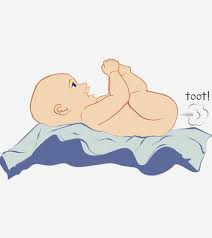You just let one rip. You and me both. But like me, you probably didn't think much of it, since farting is so totally normal. “Flatulence is the byproduct of your digestive system breaking down and processing food and nutrients,” Niket Sonpal, MD, an internist and gastroenterologist in New York City, tells Health. “Gas and air build up in your gastrointestinal tract when you eat, chew, and swallow—some of which is absorbed naturally by the body—and then gets released as a fart or burp."
Farting throughout the day and night is largely a good
thing; the buildup of gas can lead to uncomfortable bloating otherwise. In
short, breaking wind makes you feel better. But that doesn’t mean you should
totally ignore your farts. Paying attention to their frequency, smell, and if
they occur with any additional GI symptoms can clue you in to your body and
even tip you off to some potentially serious conditions. Here are six types of
farts you should take note of, and what they're trying to tell you.
You’re farting a lot and are constipated
While most people need to work on consuming more fiber,
farts that fit this description might be letting you know that you're eating
too much of it. “If people eat an excess of fiber, this can begin to cause gas,
bloating, cramps, and—paradoxically—constipation,” says Dr. Sonpal. Why's that?
Fiber bulks up and solidifies your stool. If you ingest too much, your bowel
movements can become hard to pass, he says.
To get unblocked and stop the gas, drink more water and
increase—or decrease—your fiber intake slowly, he says. Consuming 25 to 29
grams of dietary fiber each day is optimal, according to a World Health
Organization study review published in 2019.
You’re farting frequently day and night
Carbonated drinks could be the culprit. Seltzer, soda, and
carbonated booze, such as beer and hard seltzer, can introduce more air (and
thus gas) into your GI tract, making farting more frequent, says Dr. Sonpal,
especially if one of these is your go-to beverage you sip around the clock. Try
cutting back on bubbly beverages. If you're not sure your carbonation habit is
the cause, keep a record of your intake (include times when gas is a problem)
and bring it to your doctor, who can help suss things out and recommend alternative
beverages that don't make you break wind.
Your farts smell so bad, they could clear a room
By nature, farts don’t smell…great. (If they did, quiet
farts wouldn't be knowns as SBDs: silent but deadly.) But if yours seriously
reek, pin the blame on all the high-sulfur foods lurking in your diet.
“Sulfur-rich foods like broccoli and Brussels sprouts will give off that rotten
egg smell when broken down in the digestive system,” says Dr. Sonpal. The same
garbage stench can also happen after consuming other cruciferous vegetables
(like cauliflower), garlic, onions, cheese, beans, dried fruit,
and—surprise!—wine.
In most cases, the stank is nothing to worry about. But if
it persists, you might want to see your doctor. It's possible the smell is
linked to inflammatory bowel disease or irritable bowel syndrome.
Your farts are foul-smelling and you have digestive distress
Farts accompanied by abdominal pain or discomfort after
eating could be attributed to a food intolerance. “The prime example is if you
drink milk or eat cheese and then feel cramps and have excessive flatulence
that also smells like a manifestation of doomsday,” says Dr. Sonpal. In this
case, you'd have lactose intolerance, which means your body doesn’t absorb
lactose (the sugar in dairy products) until “it gets to the small intestine
where bacteria break it down, releasing fully foul-smelling farts," he
says. Eliminate dairy from your diet and see if the stinky farts vanish. If
not, check in with your doctor, who can help pinpoint what food or food group
isn't agreeing with your system.
Occasionally you fart more than usual, and they reek
You might be having period farts, which typically strike
right as your flow is due to begin. Like everything else menstruation-related,
it's hormonal: As estrogen rises at this time of the month, your uterus
produces hormone-like chemicals called prostaglandins, which help shed the
uterine lining, explains Dr. Sonpal. “If too much is produced, it can work its
way through your system and make other organs contract, including your bowels,”
he says. Bacterial changes during this time of the month also affect digestion,
and that can leave you with smellier farts as well. Try eating unprocessed,
easy-to-digest foods before you expect your period to start and holding off on
the three-bean chili or cruciferous veggie platter until after it's over.
You’re farting more and pooping more (or less) than usual
Excess stress can affect your farts—who knew? When you're
under pressure, you might turn to foods that you normally don't consume (like
processed snacks and late-night bowls of ice cream), which can affect your
digestion, says Dr. Sonpal. Stress can also make you gulp and swallow more air
without intending to. And of course, anxiety does a number on your GI system
and change your pooping frequency, he says.
We're all stressed out these days, but if you don't want
your stress level to affect your GI tract, try practicing de-stress techniques
like mindful meditation and deep breathing, which can keep you from swallowing
excess air. And be more aware of gas-producing foods you might be
stress-eating.
Credits: Jessica Migala
Health.com


Comments
Post a Comment